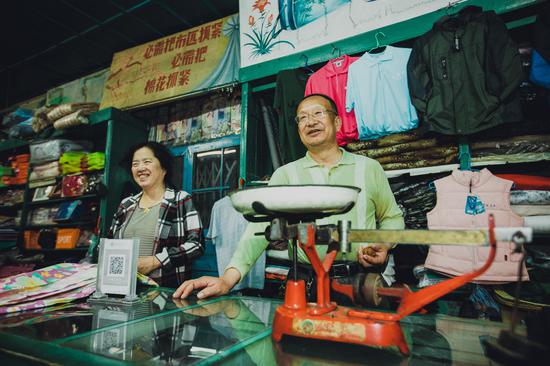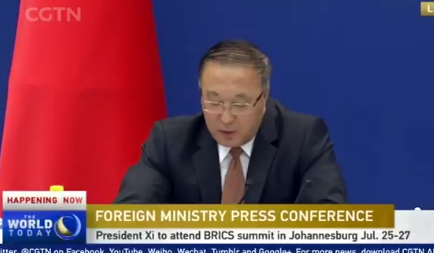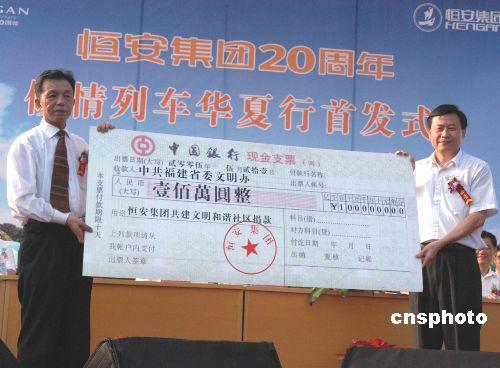
There is a rule in Hengan Group, the country's largest manufacturer of household tissue paper and sanitary products for women and babies: Never delay payments to suppliers and never lie about quality to consumers. (Photo/China News Service)
Xu Lianjie, 62, the group's chief executive and founder, told China Daily that sound business ethics and integrity have kept them ahead in the industry during the past three decades.
"Before I get loans from the bank, the first thing I consider is my capacity to pay back the loans," Xu said, adding they have had no overdue payments in their company's history.
Hengan, which grew from a simple manufacturing workshop to a listed company in Hong Kong, has implemented rules about paying suppliers in time. "If the contract requires payment in 90 days, we have to make the payment no later than that or we lose our credit and integrity," he said. "The only guarantee we have to keep our millions of loyal consumers is providing good quality products consistently with no false advertising."

A saleswoman of a sole manufacturer displays an air-bag sole developed by the company in Jinjiang, Fujian Province, on April 20, 2017. (Photo/Xinhua) Sound business ethics and credibility have fueled the prosperity of businesses in Jinjiang in Fujian Province. Hengan is among 46 listed privately owned enterprises and 822 companies with production value exceeding 100 million yuan ($15 million) in the city, which is about an hour's drive northeast of Xiamen.
Jinjiang has quickly grown from a cluster of fishing villages to become the most prosperous and developed county-level city in the province as well as a role model for other counties in the country. This has been accomplished thanks to thriving local private businesses predominantly based on manufacturing and trade.
Zhao Bei, an economics professor at Xiamen University, said the establishment of good credit and a solid reputation by Jinjiang's local business communities has kept the small and medium-sized private enterprises thriving. "Only by following business ethics can we build strong trust among local businessmen so as to grow big together," Zhao said.
Chen Gong, founding partner of Anbound, a think tank, said: "Persistence in developing the real economy, rather than rushing to quick-money businesses such as real estate, have been the winning weapon for Jinjiang's sustainable growth in the past three decades." The real economy involves activities like manufacturing.
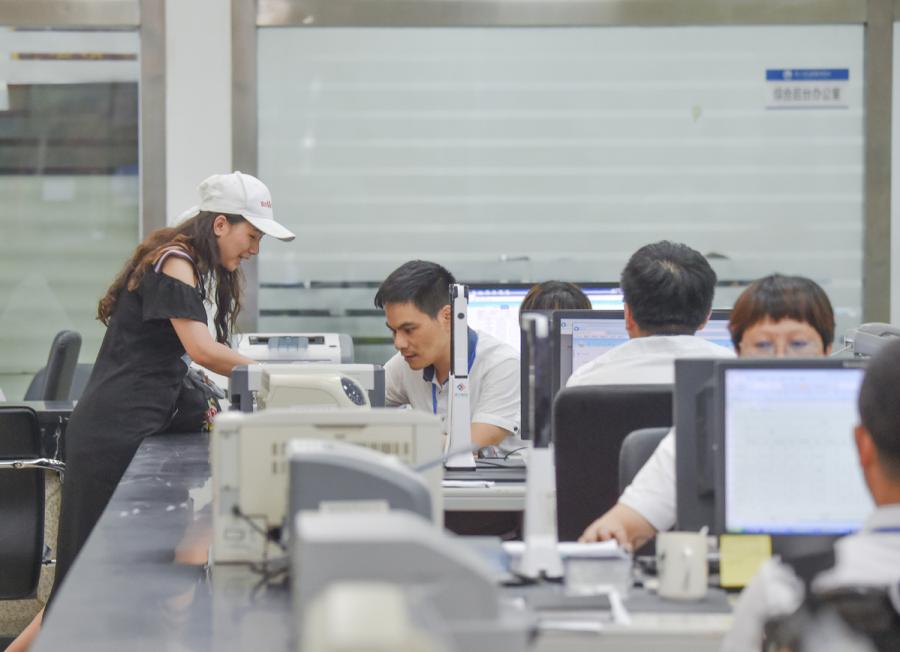
A resident (L) applies for a certificate from the Jinjiang administrative service center in Jinjiang, Fujian Province, June 19, 2018. (Photo/Xinhua)
Support from the government is widely credited with inspiring Jinjiang's success.
In 2002, Xi Jinping, then Fujian's governor, summarized and developed the theory of the Jinjiang Experience, which includes key principles of opening-up and reform like persistence and integrity. Xi made seven visits to enterprises and villages in Jinjiang between 1996 and 2002.
Guided by these principles, Jinjiang has seen an economic model based on intensive labor and resource consumption changed to one based on innovation and sustainability. Last year, Jinjiang achieved GDP of 198.1 billion yuan. The figure is 1,366 times that of 1978.
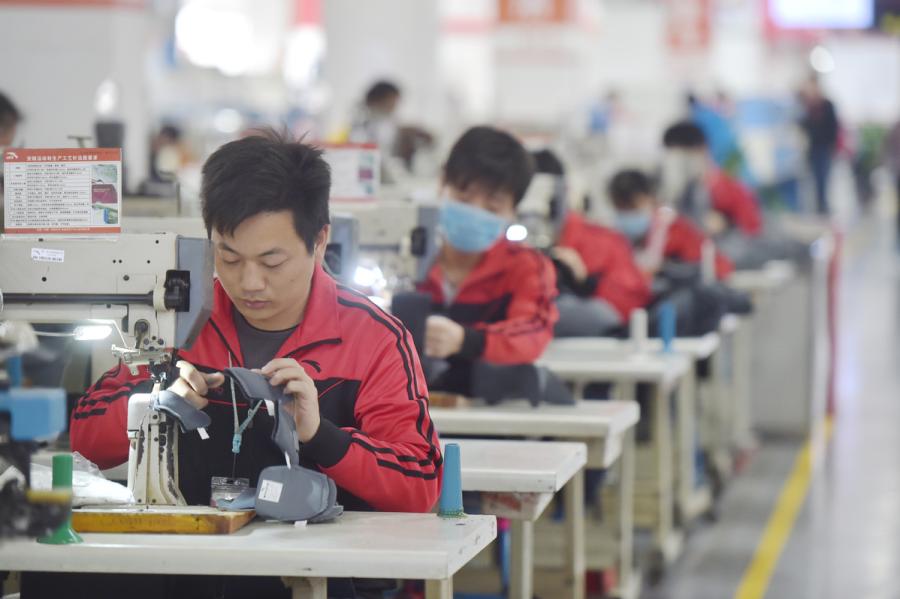
Workers at Anta Sports in Jinjiang, Fujian Province, on Feb 24, 2018. (Photo/Xinhua)
Innovation and self-developed technology have played a crucial part in elevating local companies into global players that attract international talent.
Ding Shizhong, CEO and chairman of Anta Sports, said, "To gain a foothold in global markets, Chinese brands should shift focus to product quality and brand value, rather than merely relying on low prices."
Anta has become a global sportswear player with multiple brands. The company had net profit of 3 billion yuan based on revenue of 16.7 billion yuan last year, Ding said.
Spending on research and development, representing 5.7 percent of Anta's overall revenue, has been a key factor in its fast growth. The company has registered more than 600 patents. Anta has set up innovation and design studios and centers in the United States, Japan, South Korea and Hong Kong. With operations and stores in Southeast Asian markets and Russia, Anta has plans to raise its overseas sales to 20 percent of its total sales by 2025. At present, about 25 percent of its executives are foreigners.

A potential client studies Anta sneakers during an annual expo for the shoes and sports industry in Jinjiang, Fujian Province on April 18, 2017. (Photo/Xinhua)
Angus Wardlaw from Edinburgh, United Kingdom, who has worked with Anta for about six months as head of innovation, said he frequently travels on business. He meets with producers of world-leading materials for sporting goods and equipment and with university research teams to discuss innovative developments. Perceptions are changing quickly about made-in-China brands, particularly about Anta, which is the world's third-biggest sportswear company by market value, Chen said.
"Chinese companies such as Anta are pushing innovation and Western companies have no choice but to join in or lose," Wardlaw said. "I came to China because I am an innovator and the next generation of innovation will come from China.
"It is a lot easier to convince global talent from the major brands to move to Anta because of this changing perception," he said.
Zhao, the professor, said even small and medium-sized companies in Jinjiang have set up innovation hubs that benefit all companies in an industrial chain.

ndian businessmen pose for a photo at the Anta booth during an annual expo for the shoes and sports industry in Jinjiang, Fujian Province on April 19, 2018. (Photo/Xinhua)
As Anta has shown, China has been encouraging self-innovation and paying attention to intellectual property rights protection, experts said. Significant measures have produced recognized results, according to Vice-Minister of Commerce Wang Shouwen.
"China has never stopped promoting IPR protection," Wang said, adding that foreign enterprises have spoken highly of the measures.
Since 2001, intellectual property royalties paid by China to foreign rights holders have registered annual growth of 17 percent, reaching $28.6 billion in 2017, according to China and the World Trade Organization, a white paper released on June 29 by the State Council Information Office.
Last year, China's invention patent applications ranked first in the world for the seventh consecutive year, Chen said.
Wang called it another example of China's sound IPR protection. "China will continue to work hard in strengthening IPR protection in the interest of not only Chinese but also foreign enterprises," he said.













